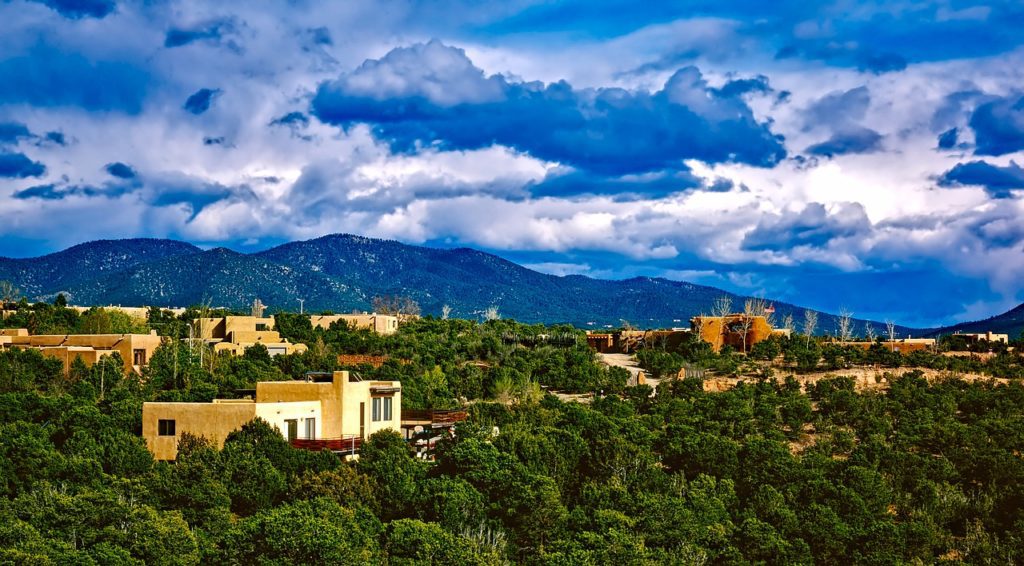
Forests sequester about one third of greenhouse gas emissions, yet only a handful of U.S. communities include trees in GHG inventories.
Washington, D.C. (August 19, 2019) – Today, ICLEI–Local Governments for Sustainability USA (ICLEI) unveiled new guidance that enables U.S. cities and counties to include forests and trees within their greenhouse gas (GHG) emissions accounting, a key activity to ensure representation of local forestry and land use consideration in climate action planning. Developed in partnership with the Woods Hole Research Center and World Resources Institute (WRI), and funded by Climate and Land Use Alliance (CLUA) and Doris Duke Charitable Foundation, the Forest and Land Use Appendix to ICLEI’s U.S. Community Protocol for Accounting and Reporting of Greenhouse Gas Emissions will help fill a critical gap in enabling communities to develop climate action related to land management at a local level.
Forests and trees sequester about a third of the greenhouse gas emissions that humans emit every year; however, a study conducted by ICLEI showed that 60 percent of U.S. community respondents did not include forests or trees in their greenhouse gas inventories due to a lack of guidance on how to do so.
“Failing to include forest and trees within U.S. climate action plans — which serve as such a critical component to meeting global climate mitigation goals — simply due to lack of available guidance was a huge missed opportunity,” said Angie Fyfe, Executive Director, ICLEI USA. “The U.S. has some of the best data on land use, we couldn’t let limited expertise on how to put these numbers together be the cause for inaction.”
More than 3,500 people have downloaded The U.S. Community Protocol since 2012. The Forest and Land Use Appendix of the Protocol provides, for the first time, guidance to U.S. communities for estimating the emissions and removals from forests. The Appendix also considers “trees outside forests”, including urban trees and trees in croplands, which are often overlooked in national assessments.
The protocol was piloted with Montgomery County, Maryland; Los Angeles County, California; and Whatcom County, Washington; representing the dramatic spectrum of climate and land cover across the country.
“Montgomery County jumped at the opportunity to explore the sequestration benefits associated with trees and forests,” said Marc Elrich, County Executive, Montgomery County, Maryland. “Given our aggressive GHG reduction goals of 80 percent by 2027 and carbon neutrality by 2035, increased sequestration must be in the mix of strategies we employ. The new protocol also has prompted us to think more deeply about natural climate solutions ranging from reducing the heat-island effect to increasing sequestration in the agricultural sector.”
“The protocol provides a baseline for communities to start acknowledging the climate benefits that come from leaving forests and trees standing, increasing tree canopy cover in cities and incorporating trees into agricultural landscapes,” said Nancy Harris, Forest Program Research Manager at World Resources Institute and co-author of the protocol. “Having this guidance at a sub-state level is critical, given most decisions around land use are made at a very local scale.”
ICLEI USA has revised its ClearPath GHG emissions management software tool with new calculators that will allow communities to develop GHG inventories with land use in mind from the outset and is encouraging its member communities to see the new guidance to consider how forests and trees can be integrated into climate action plans.
Download the U.S. Community Protocol for Accounting and Reporting of Greenhouse Gas Emissions
#########
About World Resources Institute
WRI is a global research organization that spans more than 50 countries, with offices in Brazil, China, Ethiopia, India, Indonesia, Mexico, the Netherlands, the United States and more. Our more than 800 experts and staff work closely with leaders to turn big ideas into action at the nexus of environment, economic opportunity and human well-being. Learn more at www.wri.org.
About ICLEI USA
ICLEI USA is the country office of ICLEI–Local Governments for Sustainability, a global network of more than 1,750 local and regional governments committed to sustainable urban development. Active in 100+ countries, we influence sustainability policy and drive local action for low emission, nature-based, equitable, resilient and circular development. ICLEI USA is the lead author in the development of industry standards for local government GHG emissions accounting. Along with its ClearPath emissions management tool, the development of the U.S. Community Protocol, the Local Government Operations Protocol, and the Recycling and Composting Protocol positions ICLEI USA as experts in local government carbon accounting and climate action planning.